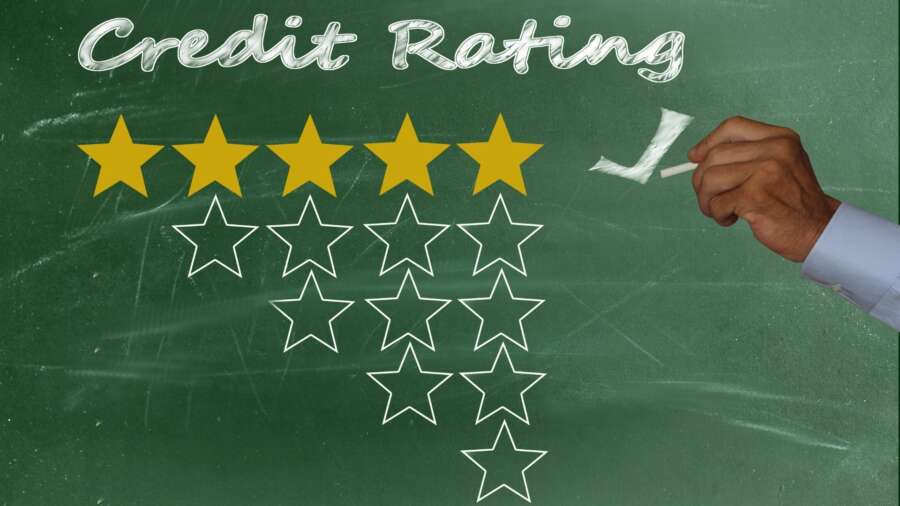
By James Piper, Managing Director of Lightbulb Credit
Company credit ratings are no longer the concern of A/P managers, sales managers and credit controllers. COVID-19 has brought ratings into the board room. C-suite understanding, engagement and input to manage and resolve issues is now becoming the norm. Increasingly more CEOs and CFOs are having conversations about their company’s credit ratings and those of their peers and suppliers.
Business credit ratings play an active part in so many financial aspects of a business, but despite this many companies still don’t understand the direct impact they can have on day-to-day operations, and more importantly business continuity and growth. Understanding these credit ratings is complex, but credit is not irreparable.
Overview of the UK trade credit market
There are five main credit rating agencies in the UK and all LLPs and Limited companies are rated using their respective algorithms. The scoring methodology for each agency is different, but all utilise data from Companies House, alongside payment data collected to evaluate how suppliers are paid against agreed credit terms.
Business credit ratings directly impact on borrowing, working capital, tendering and funding, but many businesses still don’t really understand how they can be improved or monitor their ratings. With more credit checks being done than ever before, and each credit rating agency having a different approach, it’s vital to get specialist help in this area.
The COVID-19 effect on business
With the impact of COVID-19 creating even more challenges within the credit backdrop, companies in the UK are facing turbulent times. The Office for National Statistics (ONS) said gross domestic product (GDP) fell in the second quarter by 20.4% compared with the previous three months. This is the biggest quarterly decline since comparable records began in 1955, with the UK appearing to be the worst hit of all the G7 nations.
The COVID-19 pandemic is expected to trigger a jump in business lending by 14.4% this year (compared to 2% in 2019), the highest level in 13 years according to an EY ITEM Club Interim Bank Lending Forecast. Additional bank finance (including government backed loans) has been crucial to UK corporates and SMEs during the pandemic, and this latest forecast predicts that firms as a whole will only start repaying this additional debt in net terms, and reducing their borrowing, from 2022.
In contrast to the 2008 financial crisis, COVID-19 has seen bank lending to the corporate sector accelerate rapidly, with many businesses seeking loans to help cover their costs as revenues stalled. As government furlough support tapers off, business costs will rise, and companies are likely to be even more constrained in taking on additional debt.
The threat of CCJs and insolvency
The challenge for many businesses is going to be how to re-build themselves with barriers such as limited cashflow, suboptimal credit and the immediate impact of broken supply chains, all as a result of reduced trading during the pandemic.
Creditsafe data from April of this year reported 61% of all invoices being paid late, which is a 41% increase on last year, with the transport, IT and real estate sectors showing the most significant increases, making the threat of CCJs and insolvency very real.

James Piper
Although CCJs have slowed in the first half of 2020, thought to be as a direct result of COVID-19 and also improved credit control by companies during the pandemic, the value of CCJs issued has increased by 16% in the same period.
As the recession kicks in, all indicators point to CCJ activity exceeding all previous levels, therefore taking action quickly is paramount to ensure businesses can be saved.
Whilst targeted government support in the form of tax deferrals, BBL & CBILS loans and extending the deadline for year-end accounts are helping businesses keep their heads above water in the short term, this is still creating further debt and uncertainty. A more practical approach is to adapt to the new normal, and the key will be identifying solutions that will provide long-term improvement, that can be implemented as quickly as possible.
Mick McAteer, Chairman of Registry Trust commented:
“Government interventions are shielding businesses against the worst economic impacts of Covid19. But, the damage to business finances could show up later this year.”
Improving business credit ratings
One of the main issues that can occur for businesses is the time lag after filing their annual accounts having a negative impact on their ratings and limits in the meantime. The impacts from a filing that isn’t well received can be far reaching for larger organisations. Add to this the threat of auditors also flagging concerns and the immediate outlook can suddenly appear bleak.
At Lightbulb Credit we work with five credit rating agencies in the UK, to help businesses identify issues and take action. By collating and sharing company YTD MI with the agencies, we are able to get ratings and limits re-evaluated, often in just a few days.
Every business is different, and the way that their credit is repaired will need to be different. However, all businesses, whether they are SMEs, PLCs, or anything in between, could be significantly improving their chances of surviving and thriving in this climate by repairing business credit ratings.
The benefits of credit repair
The good news for CEOs is that the credit repair service is protected by a watertight NDA that avoids any data leakage into the market. All information submitted as part of the credit repair process remains completely confidential and does not form part of general accounting records.
In the current economic climate CFOs need to be the first to know of any changes to their credit profile, arming them with the data they need to make key decisions and maximise their financial capabilities. Ongoing monitoring of credit can also put businesses in a better position to proactively manage and improve relationships with their key suppliers and clients.
An improved credit rating can achieve positive and significant results in a short amount of time, which is now more important than ever. For CFOs, keeping control of credit ratings could be the key to giving their company the stability and strength needed to prosper post COVID-19.


